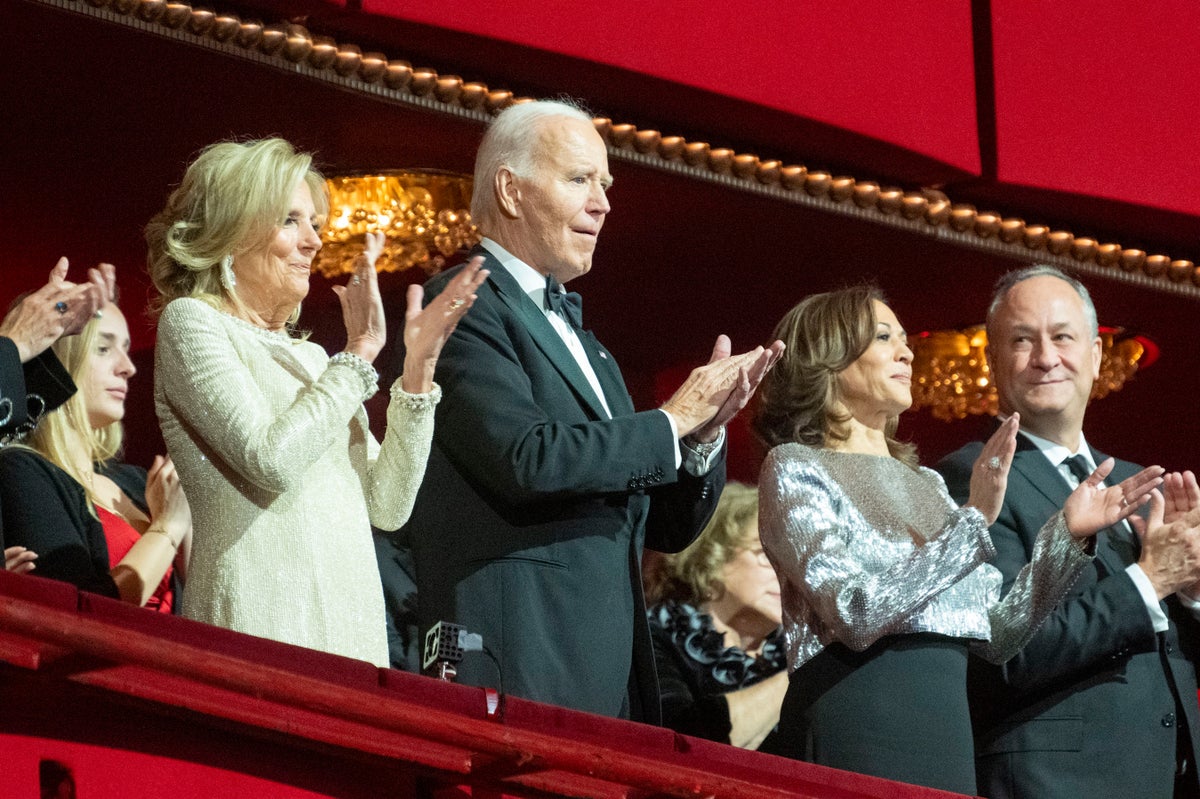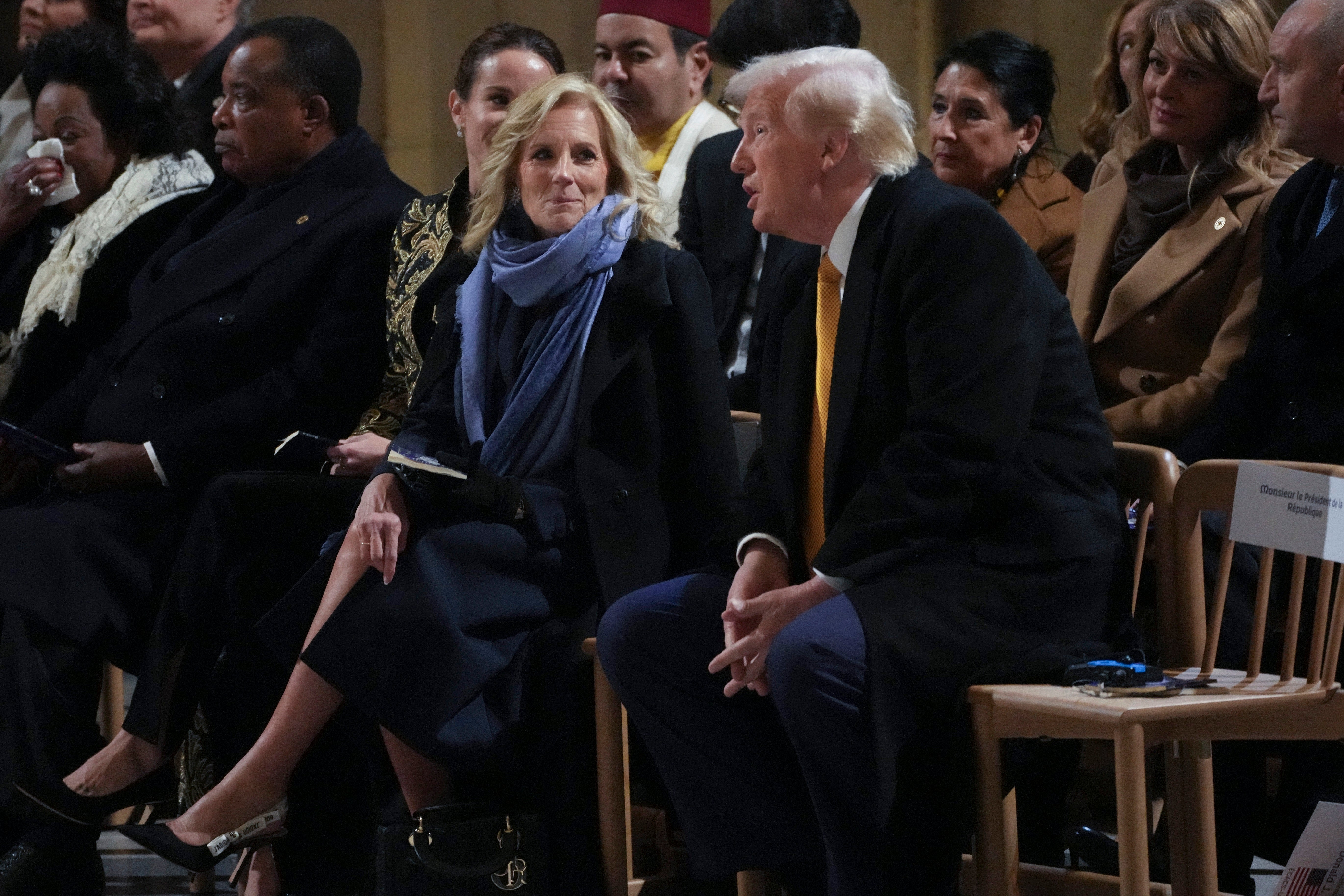
Donald Trump won’t be sworn in for his second term as president for more than a month, yet by some measures one could infer that Joe Biden has largely given up acting as America’s head of state.
When world leaders gathered in Paris over the weekend to celebrate the reopening of the iconic Notre Dame cathedral, the sitting American president was nowhere to be found. Instead, only his wife, First Lady Jill Biden, was there to represent the US government. Joe Biden remained in Washington, apparently due to an unspecified scheduling conflict.
Meanwhile, Trump — by law a private citizen with no official functions until noon on Inauguration Day — was posing for grip-and-grin shots with French President Emmanuel Macron and Ukrainian President Volodymyr Zelensky during a meeting between the leaders arranged by Macron.
The scene in Paris was yet another display of the shrinking presence Biden has exhibited since the election just over a month ago.

Not long after Trump’s victory, Biden left the continental United States for a ten-day trip to Peru and Brazil for the APEC and G20 summits, where he met with a succession of heads of state and government. Then, after a brief return to Washington and a Thanksgiving holiday sojourn in Nantucket — during which he issued a sweeping pardon to absolve his son Hunter of multiple federal crimes — he left for a long-planned trip to Angola, making him the first American president to visit that continent since Barack Obama.
Biden didn’t hold a single press conference on either trip, even though it’s standard practice for American leaders to take questions from traveling reporters when overseas.
Into that vacuum has entered Trump, moving rapidly to roll out personnel picks and make bold declarations of soon-to-be US policy on his preferred social media platform, Truth Social. And to a certain extent, he has already gotten results.
A threat to impose tariffs on imported goods from Canada and Mexico immediately put him into contact with the leaders of both countries, after which he claimed to have had productive conversations. Meanwhile, his visit to Paris at Macron’s invitation saw him arrive with the pomp and circumstance of a sitting head of state.
And during the days-long rebel action that toppled Syrian dictator Bashar al-Assad’s regime, Trump spoke publicly before Biden, with a Truth Social post in which he declared that the US should “have nothing to do with it” and “not get involved.” Biden didn’t weigh in until Sunday, after it was clear that Assad had fallen, with a brief statement delivered to television cameras in the West Wing. He then took a single question on the whereabouts of journalist Austin Tice, long thought to be held captive in a Syrian prison.
Biden has also declined to offer any reaction to or opinion on Trump’s proposed nominees, including his pick to run the FBI, Kash Patel, or his Secretary of Defense-designate, ex-Fox News host Pete Hegseth. Other Democrats have condemned both selections as evidence of Trump’s commitment to retribution over the needs of the American people.
Privately, Biden aides dispute that he — or Trump — is doing anything differently from previous outgoing presidents or presidents-elect. And it’s true that it’s not unusual for presidents-elect to meet with or speak to foreign leaders. Nor is it abnormal for them to make announcements about personnel or policy.
People familiar with the president’s thinking also tell The Independent that Biden’s relative reticence is a product of his deep desire to respect the outcome of last month’s election — something he said he would do on multiple occasions when pushed by reporters.
It is understood that Biden is acting out of a belief that a smooth transition of power is more important than ever, as well as a desire to set an example for the nation and the world as to how it is done in the wake of the election denial and violence that accompanied Trump’s exit from office four years ago.
Biden confidantes also say that he plans to speak out more forcefully about his own accomplishments and legacy in coming weeks, including in a major address at the Brookings Institution set for Tuesday morning.
One adviser also pointed to the Democratic National Committee’s aggressive messaging regarding Trump’s proposed nominees as evidence that Biden still takes his role as Democratic Party leader seriously in the waning days of his term.
Yet not all corners of his party are satisfied by the tone he is setting over the last weeks of his administration.
Waleed Shahid, a progressive strategist, told The Wall Street Journal that Biden’s relative silence has prevented Americans from learning about the true danger of Trump’s picks. Many Americans, he said, “don’t know Kash Patel or even who Matt Gaetz or Tulsi Gabbard are,” but could be educated about them if Biden used his bully pulpit.
“The only way to win the war of attention is by going to the voters and explaining things to them, which President Biden has consistently avoided doing,” he said.
Another strategist — who asked not to be named because of the sensitivity of criticizing the sitting president — said Biden is exhibiting the same “unilateral disarmament impulse” that caused Vice President Harris’s campaign to not hit back more forcefully against Trump’s attack ads during the election.
But the White House is defending Biden’s pace and tone as appropriate for the period.
In a statement to The Independent, White House Senior Deputy Press Secretary Andrew Bates pointed to Biden making “every day of this term count” by working to “accelerate the implementation of an unprecedented agenda that will benefit hardworking Americans for generations: bringing American manufacturing home from overseas, taking the most significant action to fight climate change in human history, beating Big Pharma so Medicare can negotiate lower drug costs, bipartisan legislation to protect communities from gun violence, repairing and modernizing our nation’s infrastructure, and hundreds of groundbreaking judicial confirmations.”
Biden, Bates said, is “leading by example for the sake of American democracy, honoring his campaign promise to respect the will of the voters and provide an orderly transition” and “also actively engaging with a wide range of leaders about the future of the Democratic Party, the need to continue fight for working people.”







